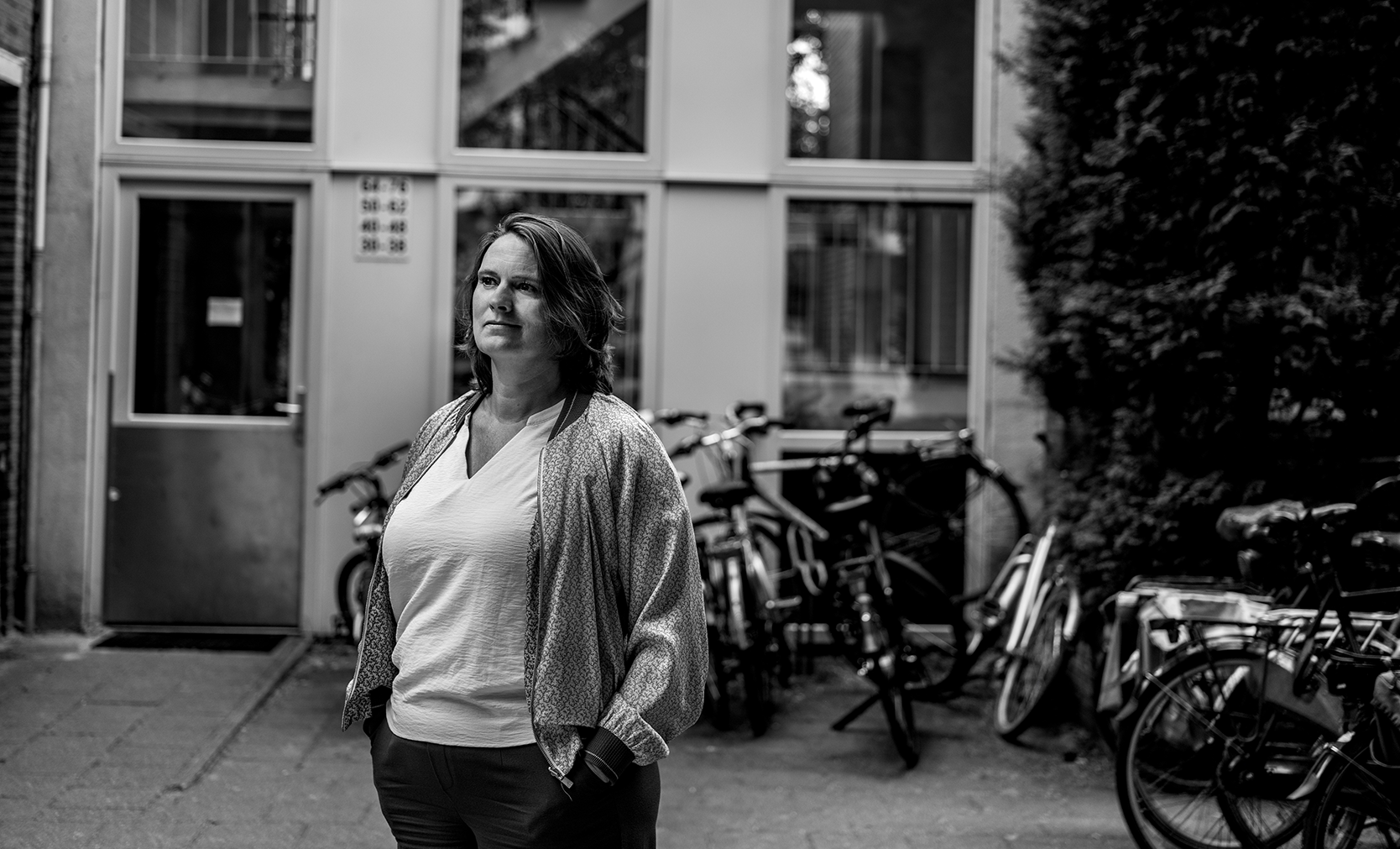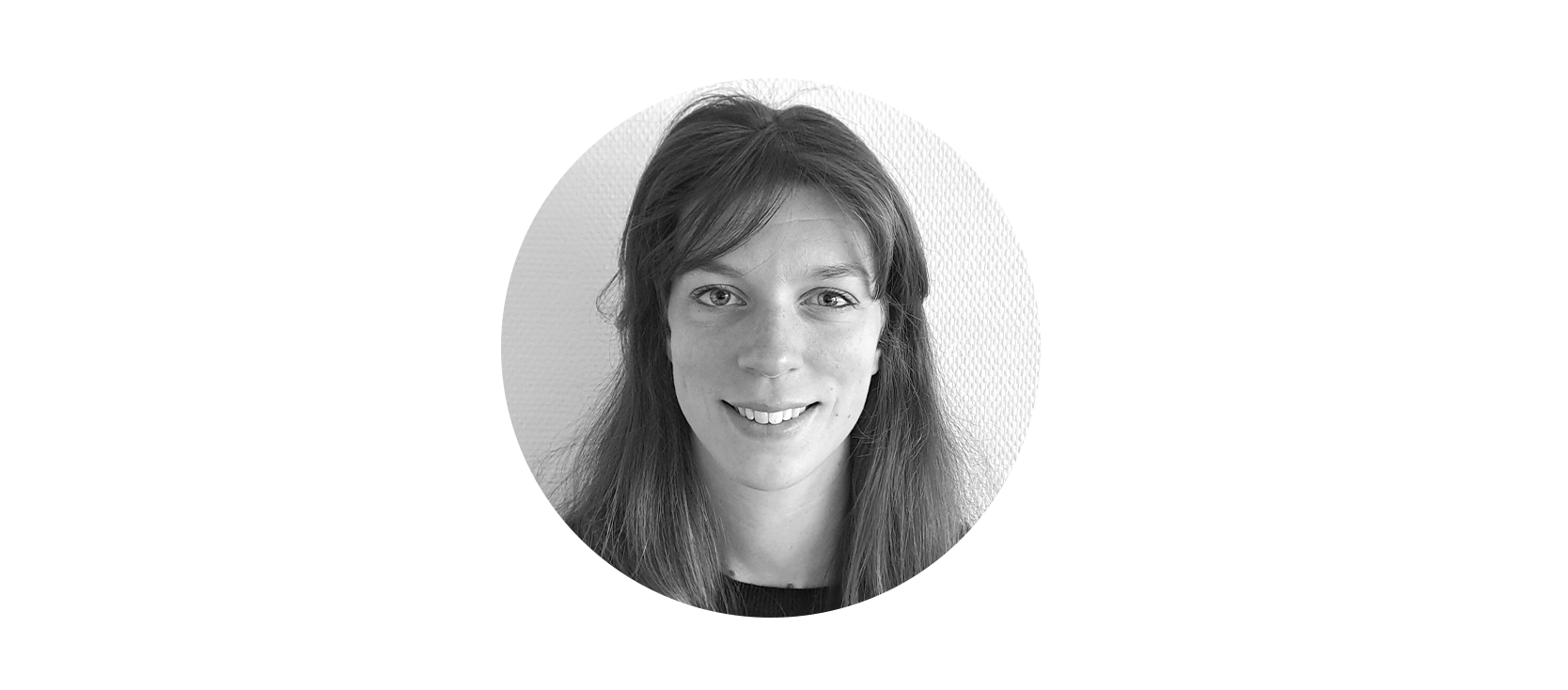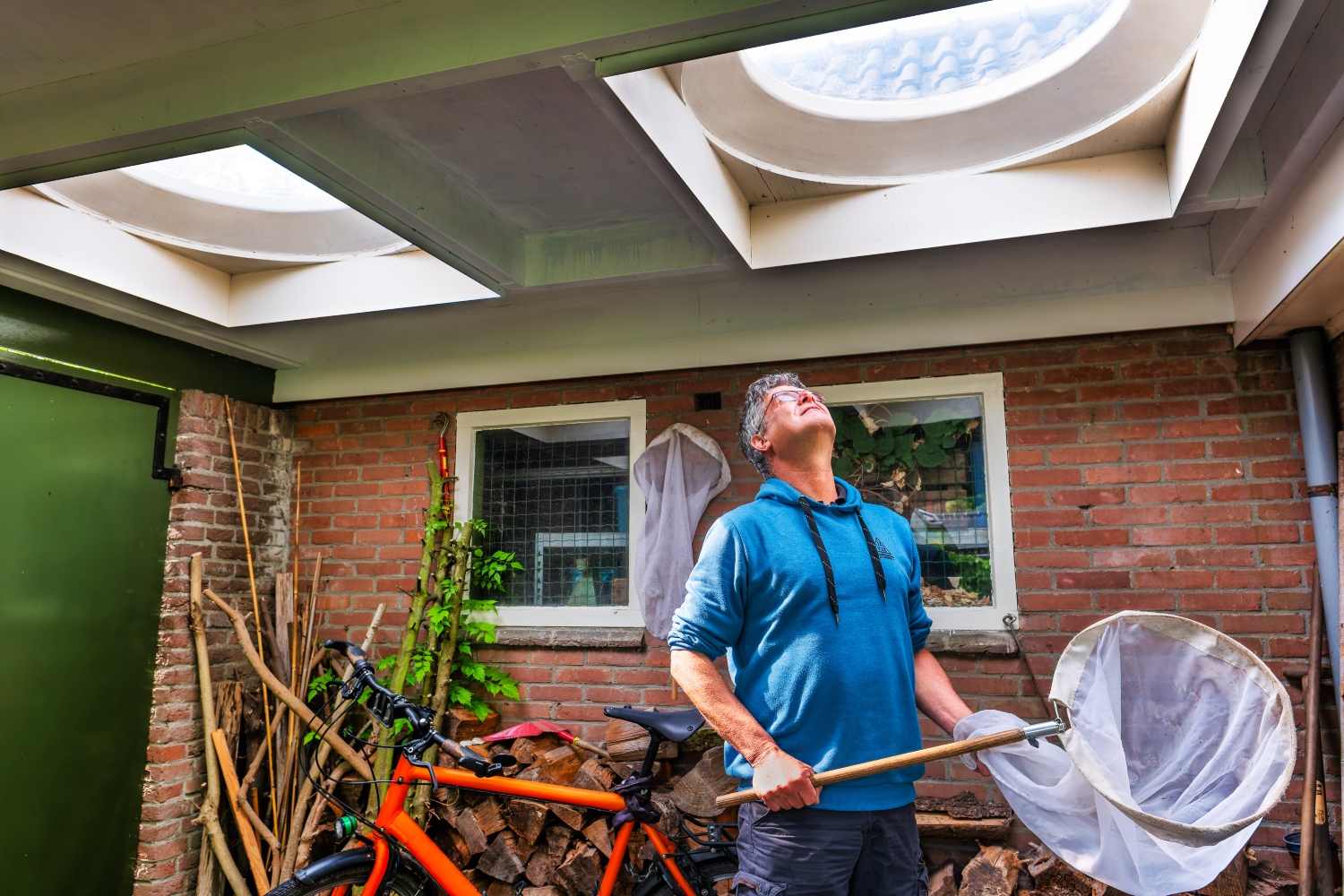‘Lifestyle professor’ Emely de Vet left for Tilburg University two years ago to become dean of the University College. But now she is back in her old home. ‘I naturally take an interdisciplinary approach.’
Before she left for Tilburg, De Vet held the chair of Consumption & Healthy Lifestyles, the group she set up. Now she is returning as a professor holding a personal chair ‘with a focus on behavioural change, health and the living environment, in particular in the urban context’, as the appointment announcement puts it. That means she is more or less back in her old home. ‘My professorship is funded by two groups, Consumption & Healthy Lifestyles and Urban Economics, for three and two days a week respectively. Through that position, I am also a principal investigator at the AMS Institute,’ she explains (see inset).
So Tilburg wasn’t Wageningen?
‘I was dean of the University College at Tilburg, an institution that offers a specific form of interdisciplinary education covering the liberal arts and sciences. I thought it would be the perfect place for me. I am good at working across disciplines and boundaries, I live close to Tilburg and after ten years at WUR — where I had done a lot in research and management — it was only logical to look for something else and put more emphasis on the education side. But it turned out not to be such a good fit.’
WUR gives you more scope to be enterprising and creative than other places
‘A lot of my research is about how the environment determines people’s behaviour and how a certain context leads to certain outcomes, and that was exactly what happened to me now in my job. I was the same person, but I couldn’t achieve as much because of the interaction with the Tilburg context in terms of culture, the institutional setting and leadership. I simply don’t thrive in an environment with a lot of fixed procedures and structures. I hadn’t really realized that beforehand. To be clear, I left on good terms and I hope to be able to collaborate with Tilburg University in future in my new job.’
Did you consider moving to another organization?
‘Of course, and I had options too. But I chose Wageningen because I realized that’s my area of expertise, that is where I have added value and it’s an environment where I thrive. I find health sciences combined with the life sciences more interesting than with a more medical context. The most urgent health issues facing us now and in the future, such as obesity, microbial resistance and climate change, are ones that require input from Wageningen’s fields of expertise. They are about how we produce food, deal with animals, plants and nature and design the living environment. Another factor in my decision was how easily you can connect and collaborate with others here and start up new things. WUR gives people more scope to be enterprising and creative than a lot of other places.’
You are returning as a personal professor with the urban aspect as a new focus area in your research. Tell us about this.
‘My research has always been about the interaction between how the environment is set up — in terms of the physical, social, economic and organizational aspects — and its effect on people’s behaviour. A city is an ecosystem in which various social developments come together.’
Doing something meaningful is important to me
‘What’s more, a city is a demarcated living environment in which you can study specific issues relating to health and behaviour. For example, health inequality tends to be greater in cities because you have people living there on very high incomes and people with very little money. The urban food environment is also quite different: you have eateries everywhere, you have Uber Eats, so you can get whatever you want at any time. Climate change can also have a big health impact in cities — take the heat island problem. In cities you have all kinds of dynamics interacting between people, infrastructure, plants and animals, all taking place in a relatively small area with an awful lot of people. I find that a fascinating puzzle to figure out.’
So can the city serve as a canvas on which to do the kind of ‘broad-based’ research you have always done?
(She laughs) ‘It’s true my projects are getting ever more complex, comprehensive and broader. That is probably because of how I think. I was trained as a health scientist and that teaches you to look at health from multiple perspectives. For example, you study courses on healthcare law, health economics and health sociology. Then I started to involve the behavioural science as well. That seems only logical to me, but of course you need to keep it all connected. I want to be able to explain why I’m interested in resistance to antibiotics and in exercise among the young and in preventing infections and in the food environment. The urban environment is a good overarching context in which to study all my “hobby horses” and keep my research field clearly delimited.’
Now you can write new research proposals to your heart’s content?
‘That’s right. I still had various PhD candidates and ongoing projects here, for example on the effect of interventions in the food environment. I’ve also brought a couple of projects with me from Tilburg. One, on crop protection, was a joint project with Wageningen anyway. And I am indeed busy on various new proposals. I know some people hate that task but I love it; my main challenge is not to go overboard. At any rate, I will be able to concentrate on the subject matter again. Over the past few years, I’ve had managerial roles in large teams, and it’s nice that I don’t have to be managing a team any more.’
Have you already got ideas on how you will be shaping your research?
‘It will definitely have a strong interdisciplinary component because that comes naturally to me. And it needs to be something new: I always want to be tackling new things. That might reflect the fact that as a person I’m easily bored, but as a researcher my preference for innovation is a strength. I’m always having new ideas and making lists. In addition, my projects are always about some complex social problem that I don’t just want to understand thoroughly — regardless of where I need to get the necessary knowledge, whether that’s in the field of economics, psychology or sociology — but where I also want to find tools that can help us deal with it.
I don’t just want to build knowledge, I also want to make an impact and help policy-makers. In Tilburg, it wasn’t common practice to look beyond the university and see which organizations could benefit from your knowledge. But that’s second nature to me — and typical of Wageningen, I now realize. I think WUR is far too hard on itself in that regard. We are already very advanced in terms of interdisciplinary and transdisciplinary approaches.’
What will your role be in education and in other WUR projects?
‘For the time being, I’m mainly providing all-round support for Consumption & Healthy Lifestyle and Urban Economics. The emphasis will be on teaching about consumption and lifestyles, health economics and health inequality. Both groups teach courses for a lot of different degree programmes. That means they are sometimes short of staff, and I’m very versatile. I will also be doing a bit of networking, bringing in partners, publicizing the amazing health research we do here and making connections with other professors and groups. Both Eveline and Harm (Eveline van Leeuwen, professor of Urban Economics, and Harm Veling, professor of Consumption & and Healthy Lifestyles) know I like to help the organization with more strategic and overarching issues. I want to add value to the organization. Doing something meaningful is important to me.’
AMS Institute
The Amsterdam Institute for Advanced Metropolitan Solutions (AMS Institute) is a science institute run jointly by WUR, Delft University of Technology and Massachusetts Institute of Technology (MIT). It aims at urban innovation, with the city of Amsterdam as a living lab and Amsterdam municipality as a partner. It focuses on science-based solutions for climate change, health, energy provision, food security and mobility, specifically in the urban context.

 Professor Emely de Vet: ‘My research has always been about the interaction between how the environment is set up and its effect on people’s behaviour.’ Photo Duncan de Fey
Professor Emely de Vet: ‘My research has always been about the interaction between how the environment is set up and its effect on people’s behaviour.’ Photo Duncan de Fey 

